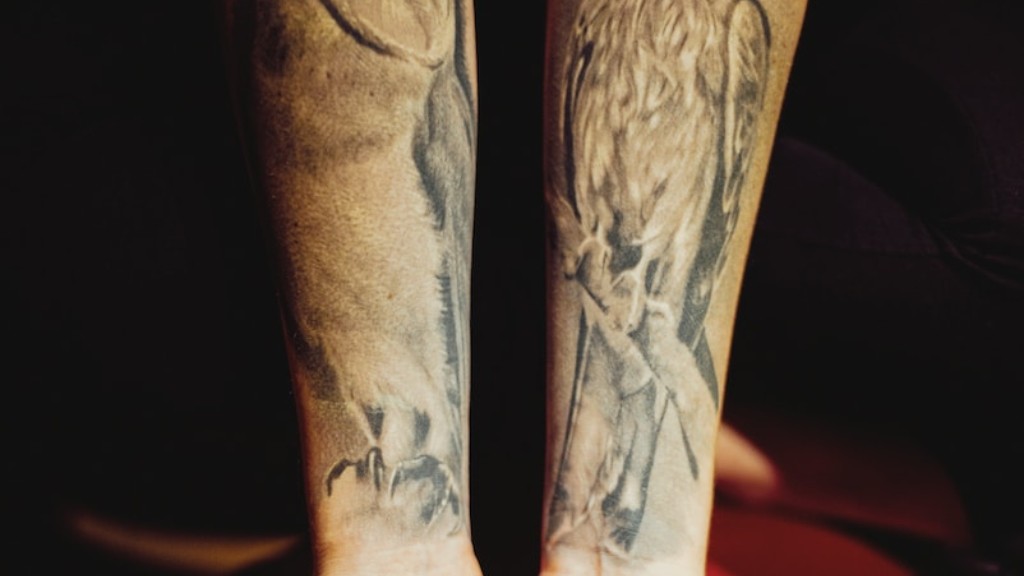Do Tattoos Prevent Human Trafficking?
The issue of human trafficking is one that continues to plague our society, causing unimaginable pain and suffering to countless individuals. As we seek innovative ways to combat this heinous crime, one question arises: do tattoos have the potential to prevent human trafficking?
Tattoos as a Source of Empowerment
Tattoos have long been a form of self-expression and empowerment for many individuals. They serve as permanent reminders of personal triumphs, memories, and beliefs. By embracing this form of body art, survivors of human trafficking can reclaim their bodies and assert their autonomy. Tattoos can serve as poignant symbols of resilience, marking a new beginning and a break from the past.
The Power of Visibility
Tattoos, prominently displayed, can serve as a visible identifier for survivors. They act as a subtle alert to law enforcement officers, healthcare providers, and the general public. When aware of the specific tattoo symbols associated with human trafficking, individuals are more likely to report suspicious activities or provide assistance to potential victims. By creating a shared language of recognition, tattoos can empower communities to take action against this horrendous crime.
Shattering Stigmas and Encouraging Conversation
Human trafficking thrives in the shadows of society, perpetuated by silence and shame. By adorning their bodies with tattoos, survivors not only break free from the invisible chains of their past but also shatter the stigmas attached to this crime. Tattoos become conversation starters, opening up dialogue about the realities of human trafficking. With each tattooed survivor sharing their story, the public gains a deeper understanding of the issue, fostering empathy, and facilitating change.
Turning Survivors into Ambassadors
Much like an artist painting a masterpiece, survivors can become walking canvases, sharing their experiences and raising awareness. Tattoos allow survivors to become ambassadors in the fight against human trafficking. Their body art becomes a testament to their journey, capturing the attention of onlookers and inspiring action. No longer victims, these individuals transform into a force to be reckoned with, actively contributing to the eradication of human trafficking.
Tattoos as a Tool for Identification
In the fight against human trafficking, tattoos can serve as crucial tools for identification. Law enforcement agencies can use tattoo registries to connect missing persons to potential trafficking cases. By analyzing and cross-referencing tattoos found on victims, investigators can establish patterns, track criminals, and dismantle trafficking networks. Tattoos can provide investigators with valuable leads, ultimately leading to the rescue of vulnerable men, women, and children.
A Unique Identifier in Rescue Efforts
When survivors are rescued from trafficking situations, tattoos can serve as a unique identifier, helping law enforcement identify individuals who may be reluctant or unable to speak. In moments of vulnerability, when words fail, the visual language of tattoos can communicate stories of abuse, exploitation, and longing for freedom. Through the power of these permanent marks, survivors can finally find hope for a brighter future.
Tattoos: A Symbol of Liberation
The connection between tattoos and the prevention of human trafficking is an emerging concept that holds great promise. As survivors reclaim their bodies and share their stories through this impactful form of artistry, we inch closer to creating a world free from the clutches of human trafficking. Let us embrace the potential of tattoos as a tool for prevention, empowerment, and liberation.
A Movement of Change
In the fight against human trafficking, every effort matters. The power of tattoos to prevent human trafficking lies not only in their practical applications but also in their ability to ignite conversations, shatter stigmas, and inspire change. By embracing this creative approach, we can work together to create a society that values freedom, respect, and the indomitable spirit of survivors.


